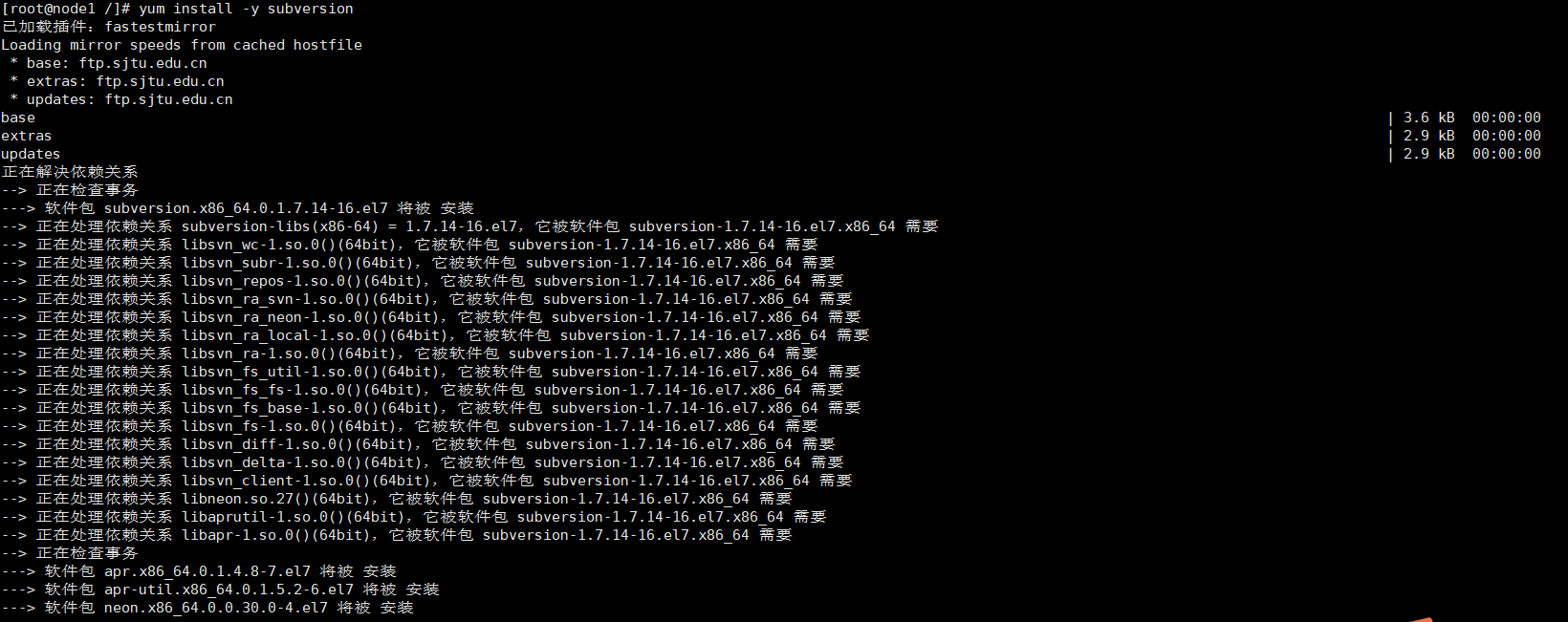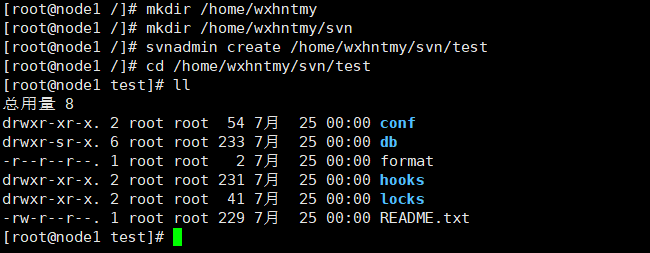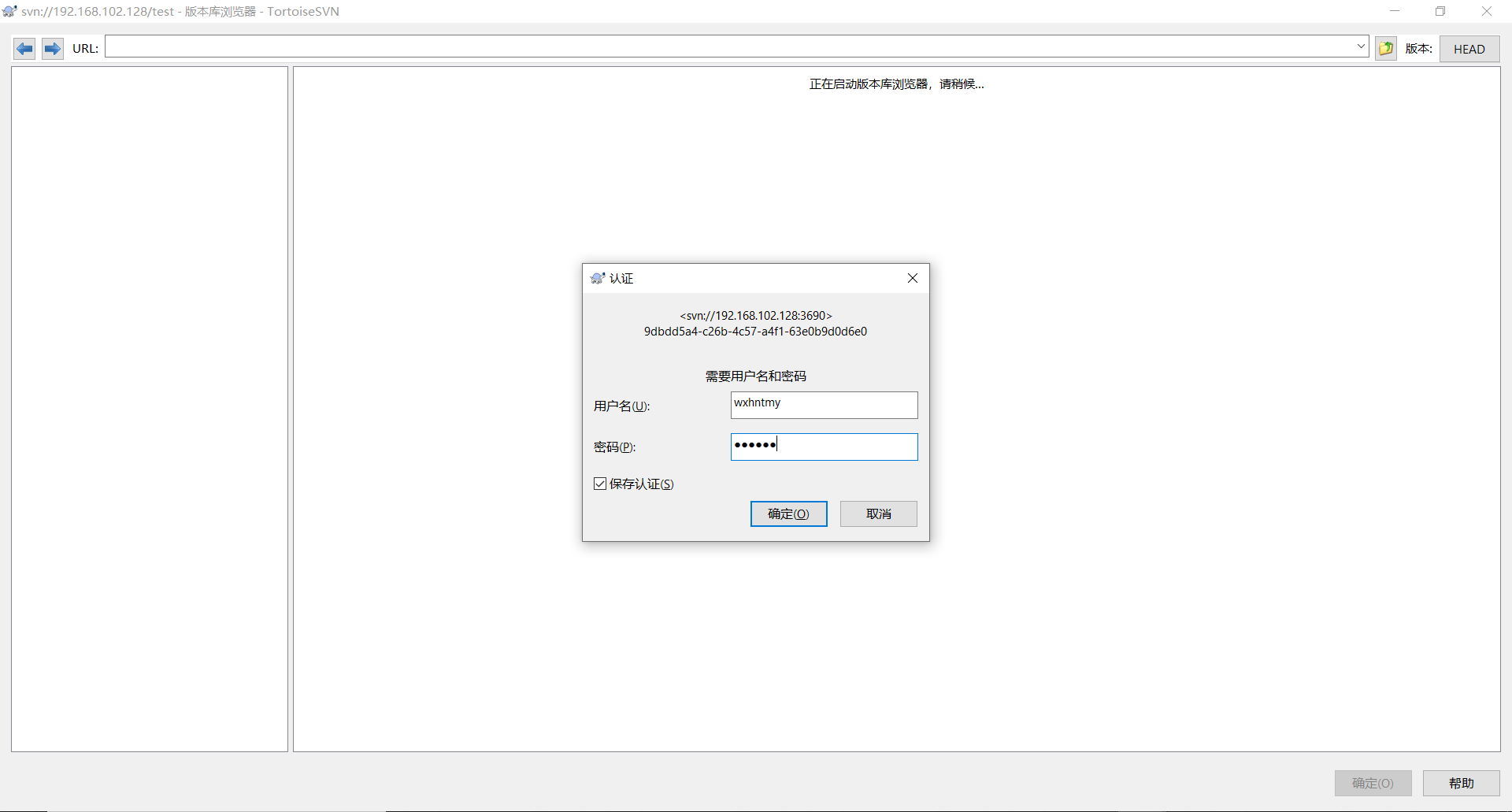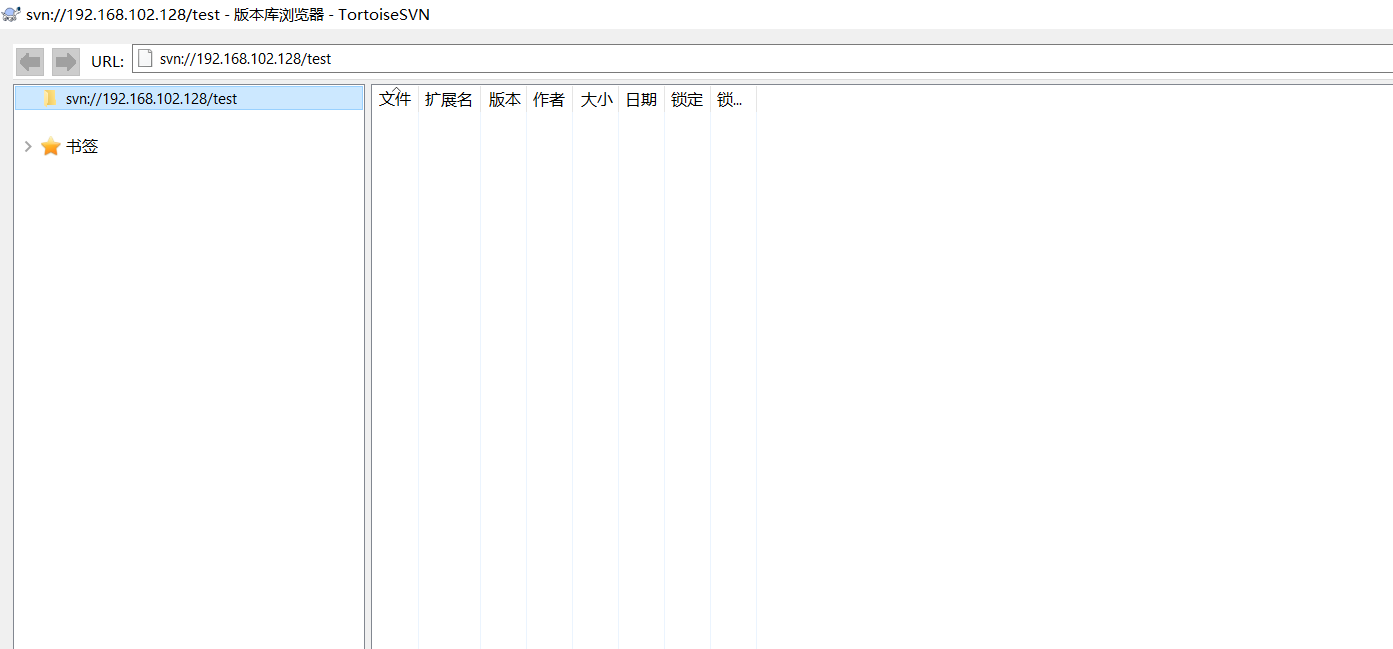yum install -y subversion

mkdir /home/wxhntmy mkdir /home/wxhntmy/svn svnadmin create /home/wxhntmy/svn/test cd /home/wxhntmy/svn/test

vim /home/wxhntmy/svn/test/conf/svnserve.conf
### This file controls the configuration of the svnserve daemon, if you ### use it to allow access to this repository. (If you only allow ### access through http: and/or file: URLs, then this file is ### irrelevant.) ### Visit http://subversion.apache.org/ for more information. [general] ### The anon-access and auth-access options control access to the ### repository for unauthenticated (a.k.a. anonymous) users and ### authenticated users, respectively. ### Valid values are "write", "read", and "none". ### Setting the value to "none" prohibits both reading and writing; ### "read" allows read-only access, and "write" allows complete ### read/write access to the repository. ### The sample settings below are the defaults and specify that anonymous ### users have read-only access to the repository, while authenticated ### users have read and write access to the repository. # 匿名用户的权限 anon-access = read # 权限用户的权限 auth-access = write ### The password-db option controls the location of the password ### database file. Unless you specify a path starting with a /, ### the file's location is relative to the directory containing ### this configuration file. ### If SASL is enabled (see below), this file will NOT be used. ### Uncomment the line below to use the default password file. # 用户账号和密码的文件位置 password-db = passwd ### The authz-db option controls the location of the authorization ### rules for path-based access control. Unless you specify a path ### starting with a /, the file's location is relative to the the ### directory containing this file. If you don't specify an ### authz-db, no path-based access control is done. ### Uncomment the line below to use the default authorization file. # 权限文件的位置 authz-db = authz ### This option specifies the authentication realm of the repository. ### If two repositories have the same authentication realm, they should ### have the same password database, and vice versa. The default realm ### is repository's uuid. # realm = My First Repository ### The force-username-case option causes svnserve to case-normalize ### usernames before comparing them against the authorization rules in the ### authz-db file configured above. Valid values are "upper" (to upper- ### case the usernames), "lower" (to lowercase the usernames), and ### "none" (to compare usernames as-is without case conversion, which ### is the default behavior). # force-username-case = none [sasl] ### This option specifies whether you want to use the Cyrus SASL ### library for authentication. Default is false. ### This section will be ignored if svnserve is not built with Cyrus ### SASL support; to check, run 'svnserve --version' and look for a line ### reading 'Cyrus SASL authentication is available.' # use-sasl = true ### These options specify the desired strength of the security layer ### that you want SASL to provide. 0 means no encryption, 1 means ### integrity-checking only, values larger than 1 are correlated ### to the effective key length for encryption (e.g. 128 means 128-bit ### encryption). The values below are the defaults. # min-encryption = 0 # max-encryption = 256
vim /home/wxhntmy/svn/test/conf/passwd
### This file is an example password file for svnserve. ### Its format is similar to that of svnserve.conf. As shown in the ### example below it contains one section labelled [users]. ### The name and password for each user follow, one account per line. [users] # harry = harryssecret # sally = sallyssecret wxhntmy = 123456
vim /home/wxhntmy/svn/test/conf/authz
### This file is an example authorization file for svnserve.
### Its format is identical to that of mod_authz_svn authorization
### files.
### As shown below each section defines authorizations for the path and
### (optional) repository specified by the section name.
### The authorizations follow. An authorization line can refer to:
### - a single user,
### - a group of users defined in a special [groups] section,
### - an alias defined in a special [aliases] section,
### - all authenticated users, using the '$authenticated' token,
### - only anonymous users, using the '$anonymous' token,
### - anyone, using the '*' wildcard.
###
### A match can be inverted by prefixing the rule with '~'. Rules can
### grant read ('r') access, read-write ('rw') access, or no access
### ('').
[aliases]
# joe = /C=XZ/ST=Dessert/L=Snake City/O=Snake Oil, Ltd./OU=Research Institute/CN=Joe Average
[groups]
### 若要定义组,以该形式进行定义
# harry_and_sally = harry,sally
# harry_sally_and_joe = harry,sally,&joe
### 若库中存在/foo/bar文件,并且该文件对不同用户开发不同的权限,可以如此定义
# [/foo/bar]
# harry = rw
# &joe = r
### * 代表匿名用户,""代表none
# * =
[/]
wxhntmy = rw
[/tmp]
* = r
### 讲svn库文件配置文件进行统一管理的情况,repository指明仓库名,/bar/fuz指明仓库中的文件
# [repository:/baz/fuz]
# @harry_and_sally = rw
# * = r
svnserve -d -r /home/wxhntmy/svn
-d:表示在后台运行
-r:指定服务器的根目录
查看是否启动成功
ps aux | grep svnserve

svn默认监听端口是3690
systemctl status firewalld
firewall-cmd --zone=public --add-port=3690/tcp --permanent
firewall-cmd --reload
firewall-cmd --zone=public --query-port=3690/tcp

浏览器地址栏输入:
svn://192.168.102.128/test
输入设置的用户名、密码
就可以看到svn仓库的文件了
vim /etc/sysconfig/svnserve
修改为 svn 目录
# OPTIONS is used to pass command-line arguments to svnserve. # # Specify the repository location in -r parameter: OPTIONS="-r /home/wxhntmy/svn"

#启动svnserve服务 systemctl start svnserve.service #设置开机自启动 systemctl enable svnserve.service #停止开机自启动 systemctl disable svnserve.service #查看服务当前状态 systemctl status svnserve.service #重新启动服务 systemctl restart svnserve.service